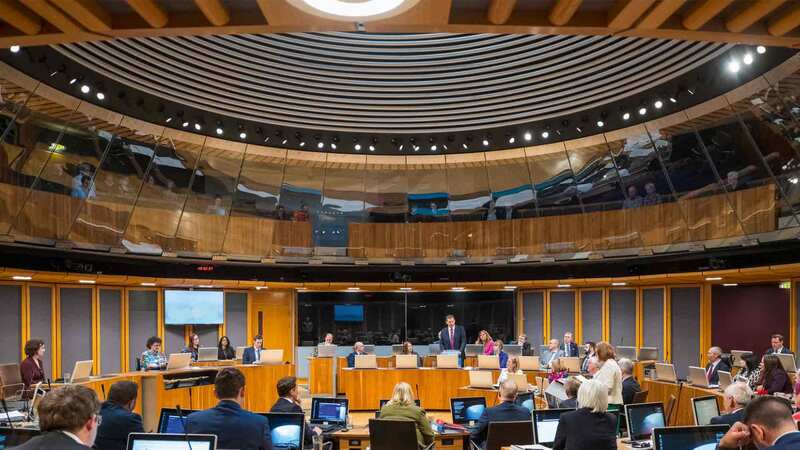You are viewing your 1 free article this month. Login to read more articles.
Literature Wales raises 'serious concerns' about government review
Literature Wales has said it has "serious concerns" regarding a government review released last week that accused the body of being "inward looking" and "uncertain as to its proper purpose."
The review, which was commissioned to investigate whether the Welsh government's aims in supporting the Welsh book industry were being achieved, recommended that trade body Welsh Books Council take on some of the functions of Literature Wales, which describes itself as the "national company for developing literature in Wales" and is led by chief executive Lleucu Siencyn.
The functions which the report recommended the Welsh Books Council should take on from Literature Wales include the Wales Book of the Year prize, bursaries, literary events, its Writers on Tour funding scheme, and provision for children and young people.
The report said that there were “significant deficiencies” in the promotion of the Wales Book of the Year prize and a “significant question mark as to whether Literature Wales is the appropriate organisation to be co-ordinating it”.
The panel behind the report said: “There is a sense that it [Wales Book of the Year Prize] is increasingly underfunded and a palpable lack of enthusiasm for it from Literature Wales itself. Recent awards have received very little press coverage and promotional material in bookshops have been scant. These are opportunities missed. The panel questioned the value of the award if it did not lead to further promotion, prominence, sales and readership.”
The panel also criticised the decision of Literature Wales to undertake a review of the prize without notifying the Welsh Government or the panel. “The Review Panel was extremely disappointed with the timing of this review and the lack of consultation”, the report said.
Speaking of Literature Wales as a whole, the panel said that it felt that the organisation seemed “uncertain as to its proper purpose” and suggested that Literature Wales should act as an “enabling body” rather than being “inward looking and aiming to do everything itself”.
Overall the panel felt that the missions and goals of the organisation were "unclear" and that its mission statement and to "serve people, to serve everyone" is "unrealistic and vague".
"Literature Wales is very much an inward looking organisation and does not have a strong enough focus on outcomes. Literature Wales can no longer be considered a young organisation but the panel considered that in its evidence it demonstrated a lack of maturity and strategic planning in a number of key areas," the report said.
At the time the report was released, Literature Wales said it would give it “careful and thorough consideration”. But today it has said it it has “serious concerns” about the report, particularly "the evidence offered in the review and its relationship to the recommendations".
A statement from the organisation said: “Literature Wales is proud to have delivered, in partnership with Welsh Government and Arts Council of Wales, several major projects which have resulted in wider engagement with literature in all its forms. Working closely with a wide range of contemporary writers and literary practitioners, Literature Wales is committed to both enabling and celebrating literary excellence and to democratising and extending the reach and definition of literature.
"Literature Wales is involved in ongoing discussions with key stakeholders in order to develop a more strategic and connected approach for the sector as a whole."
Economy Secretary Ken Skates, who commissioned the review, said upon release of the report: “Given the significant weight and compelling nature of the evidence received, I am minded to accept the main recommendations and the Welsh Government will now work with the relevant organisations to implement them. Some of these recommended changes are extensive but they are in response to specific needs in a specific area of activity. They are in no way a reflection of the wider good work of the Arts Council or Literature Wales including the excellent delivery of major events and activities linked to our themed years, which will remain unchanged."
The review panel consisted of Professor Elin Haf Gruffydd Jones, director of Welsh Language and Culture and Professor of Media and Creative Industries, Aberystwyth University; John Williams, writer, novelist and Screen-writer; Philippa Davies, Writer and business psychologist; and consultant Martin Rolph. Chairing the panel was Professor Medwin Hughes, vice-chancellor of the University of Wales Trinity Saint David.



















